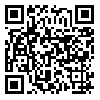Volume 18, Issue 4 (11-2019)
TB 2019, 18(4): 89-106 |
Back to browse issues page
Ethics code: IR. IAU. TMU. REC. 1397.256
Download citation:
BibTeX | RIS | EndNote | Medlars | ProCite | Reference Manager | RefWorks
Send citation to:



BibTeX | RIS | EndNote | Medlars | ProCite | Reference Manager | RefWorks
Send citation to:
Yousef Yaghoobi F, Riahi L, Tabibi S J, Mahmoudi-Majdabadifarahani M. Effective Self-Efficacy Factors in Empowerment of Health Care Networks Managers in East Azerbaijan, West Azerbaijan and Ardebil Provinces, Iran. TB 2019; 18 (4) :89-106
URL: http://tbj.ssu.ac.ir/article-1-2881-en.html
URL: http://tbj.ssu.ac.ir/article-1-2881-en.html
Fatemeh Yousef Yaghoobi 

 , Leila Riahi *
, Leila Riahi * 

 , Seyed Jamaleddin Tabibi
, Seyed Jamaleddin Tabibi 

 , Mahmoud Mahmoudi-Majdabadifarahani
, Mahmoud Mahmoudi-Majdabadifarahani 




 , Leila Riahi *
, Leila Riahi * 

 , Seyed Jamaleddin Tabibi
, Seyed Jamaleddin Tabibi 

 , Mahmoud Mahmoudi-Majdabadifarahani
, Mahmoud Mahmoudi-Majdabadifarahani 


Assistant Professor, Department of Health Services Management, Faculty of Medical Sciences and Technology, Sciences and Research Branch, Islamic Azad University, Tehran, Iran. , l.riahi@srbiau.ac.ir
Abstract: (3409 Views)
Introduction: Empowerment has determinant role in developing the ability of individuals in order to achieve sustainable improvement in efficiency of the health care organizations. This study was carried out to identify the variables and effective self-efficacy components affecting the manager’s empowerment in Health Care Networks during 2018-19.
Methods: This is an applied and exploratory study. At first, the variables involving in the empowerment of human resources were extracted by reviewing the literature as well as interviewing with the specialists. Then, the conceptual model was designed, the questionnaire compiled and its validity and reliability confirmed. The data were collected through the completing of the questionnaire by 416 managers who were chosen via stratified random sampling method and analyzed using exploratory and confirmatory factor analysis.
Results: According to the results of the exploratory factor analysis, the variable “continuous training” with the factor loading of 0.84 was found the most important variable. Concerning the standard coefficients of confirmatory factor analysis, variables of all the three components of self-efficacy were significant (p<0.001) and the component “Believe in responsibly ability and skill in work” (factor loading = 0.96) had the higher effect on self-efficacy. The impact rate of self-efficacy in empowerment with 0.96 and the variables “having job skills” and "emotional arousal" with 0.79 factor loading are considered as the most significant variables.
Conclusion: The Universities of Medical Sciences and Health Care Networks can improve the ability of the managers through continuous training, promotion of professional skills, responsibility and presenting the successful models and experiences.
Methods: This is an applied and exploratory study. At first, the variables involving in the empowerment of human resources were extracted by reviewing the literature as well as interviewing with the specialists. Then, the conceptual model was designed, the questionnaire compiled and its validity and reliability confirmed. The data were collected through the completing of the questionnaire by 416 managers who were chosen via stratified random sampling method and analyzed using exploratory and confirmatory factor analysis.
Results: According to the results of the exploratory factor analysis, the variable “continuous training” with the factor loading of 0.84 was found the most important variable. Concerning the standard coefficients of confirmatory factor analysis, variables of all the three components of self-efficacy were significant (p<0.001) and the component “Believe in responsibly ability and skill in work” (factor loading = 0.96) had the higher effect on self-efficacy. The impact rate of self-efficacy in empowerment with 0.96 and the variables “having job skills” and "emotional arousal" with 0.79 factor loading are considered as the most significant variables.
Conclusion: The Universities of Medical Sciences and Health Care Networks can improve the ability of the managers through continuous training, promotion of professional skills, responsibility and presenting the successful models and experiences.
Type of Study: Research |
Subject:
Special
Received: 2019/03/16 | Accepted: 2019/05/14 | Published: 2020/04/26
Received: 2019/03/16 | Accepted: 2019/05/14 | Published: 2020/04/26
Send email to the article author
| Rights and permissions | |
 |
This work is licensed under a Creative Commons Attribution-NonCommercial 4.0 International License. |




